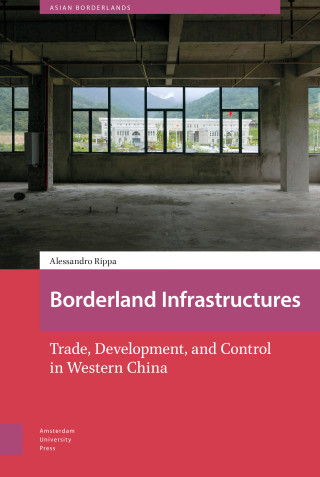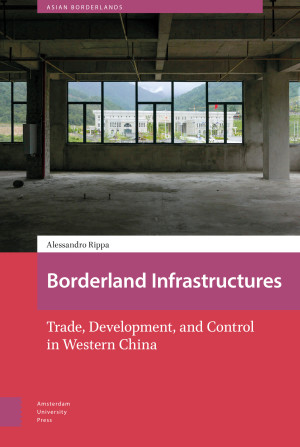Winner of the Political Geography Research Group (PolGRG) Book Award (2021-2022)
"Carefully contextualized in the literature on Inner Asian borderlands and masterfully weaving in vivid ethnographic evidence, Rippa’s book provides a compelling account of how the BRI is worked “on the ground” by traders and state officials, by local histories of exchange, and by grand narratives of frictionless connectivity. It surely will become an inspiring source of information for scholars of western China’s borders, historians, social anthropologists, and human geographers alike."
- Henryk Alff, Journal of Borderlands Studies (2022)
"Borderland Infrastructures is a tour de force, and it should be required reading not only for researchers of contemporary China or the BRI, but also for anyone interested in the anthropology and geography of infrastructure, development, heritage, borders, and mobility"
- Emily T. Yeh, The Journal of Asian Studies, Volume 80, Issue 4, November 2021
"Rippa’s analysis is a refreshing view from the ground, starkly positing the imageries of infrastructure development and social, cultural, political and ecological control used by the state with local worldviews about their transboundary connections spread over time, space and memory."
- Mirza Zulfiqur Rahman, Asian Studies Review, August 2021
"Borderland Infrastructures is essential reading for anyone interested in BRI, infrastructure. [...] Ethnographically rich and theoretically engaging, the book will be particularly useful to anthropologists, geographers, and other social scientists invested in better understanding the uneven contours of China’s contemporary regional ambitions."
- Geoffrey Aung, Eurasian Geography and Economics, April 2021
"Providing a rich and original conceptual framework for understanding the relationship between development processes and state power in China, Borderland Infrastructures is a highly recommended read for students and scholars across disciplines, including political and economic anthropology, borderland studies, development studies and Asian studies."
-Henrik Kloppenborg Møller, The Copenhagen Journal of Asian Studies, 41(1), 2023

